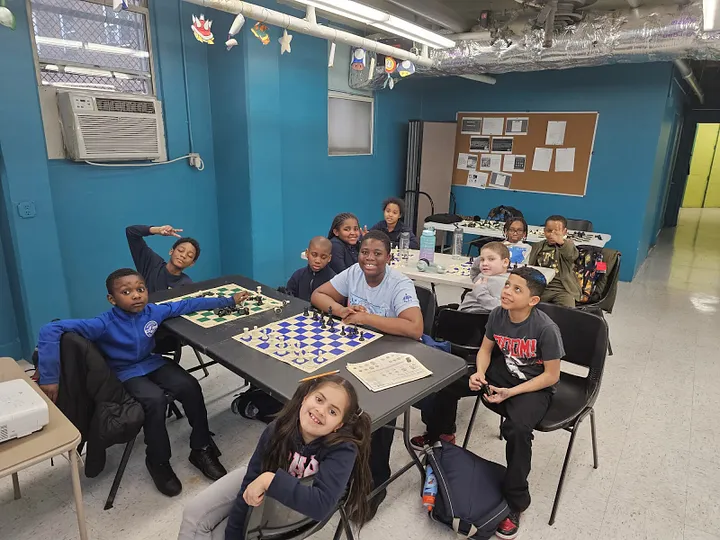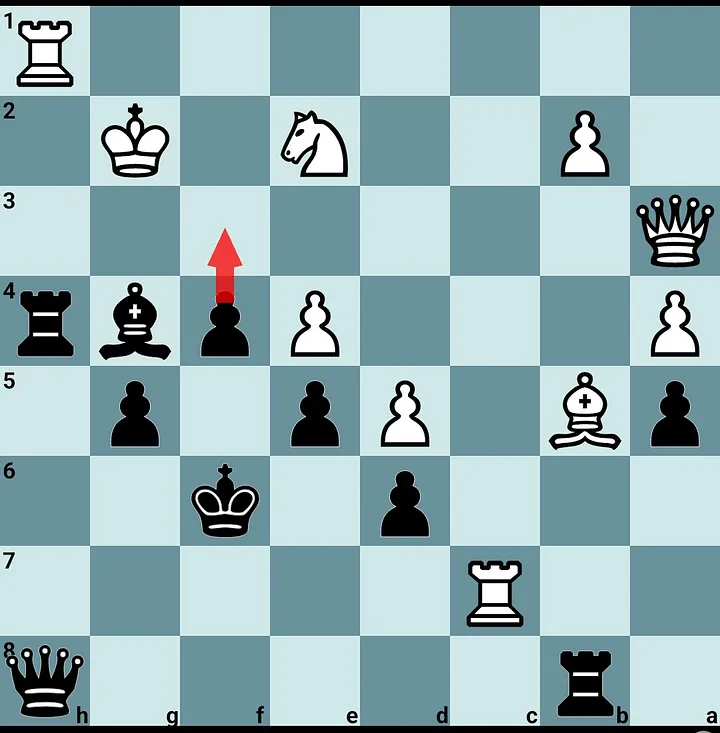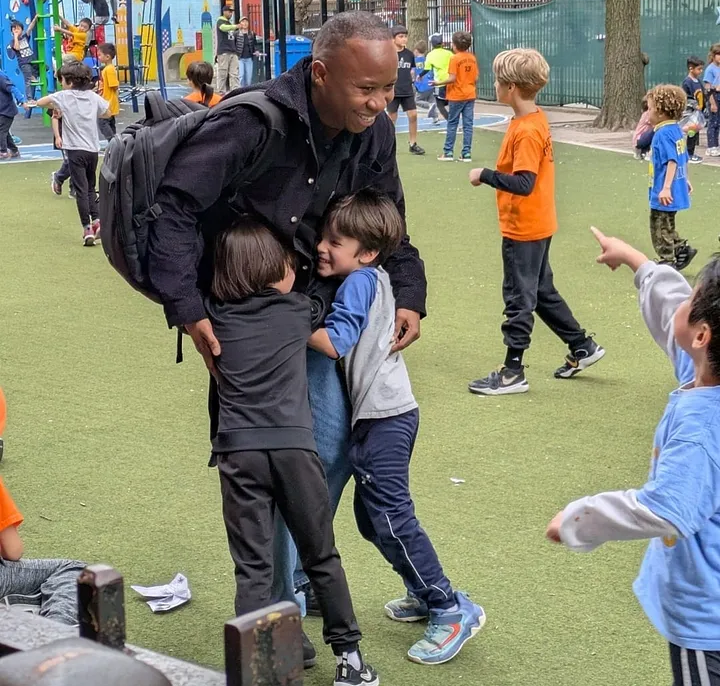Knock knock?
Tis I again, Curiosity.
Blamed for killing the cat.
Funny how you all ran with the tale of the cat’s demise, while I, Curiosity, the pulse of the wise, get tossed aside like a forbidden fruit no one dares to bite.
But take this as a wry gift, I imagine curiosity brought you here.
Yes, Curiosity killed the cat, but satisfaction brought it back.
Somehow, this rejoinder is always missed.
Hey, you’re welcome.
I hope you, dear reader, keep chasing the near mysteries of your existence, but you must dare to stay curious like I always try to be.
Somewhere in me, I knew there had to be more out there than my penchant for chasing Chess rating points, titles, and trophies. This was my unenlightened definition of a successful Chess career, achieving the FIDE Master title (which I now have attained) and the continuous race for the Grandmaster title. But as life unfolds, I have discovered an even deeper and more enduring pursuit and success metric: The joy of empowering children through the beautiful game of Chess. Nothing beats that for me.
Hi again,
I am the infamous OATS. No, not your regular oatmeal, but an acronym for Osunfuyi Ayo Tigran Spinoza. If you love oats as much as I do, remembering my name won’t be difficult. Just think of your favorite cereal, and there you have a perfect chunk to remember my name.
Lately, I have been reconnecting with my childhood love for writing, expressing myself in words I would rarely mutter. There’s a lot within OATS, and I am tapping into that nutritional essence, giving you enough grains and fibre, exuded in my thoughts and imaginative ramblings through Chess and my adventure into books and curious explorations. I’m happy to document these thoughts and experiences.
Chess, to me, is more than brute strategy and tactical grasp; it’s a lens into discipline, decision-making, and destiny. Simply, Chess has many virtues that we must imbibe. For example, a single move in Chess can teach a child courage, a long game of Chess can mirror patience, and a quiet loss can teach volumes of humility. Yet, Chess can be the most brutal on the mind, but happily so.
The Silent Road That Knew My Name

There are many paths, but only one journey. — Naomi Judd
New York is as complex and layered as a middlegame Chess position. My time here in New York City has given me the rare honor of teaching Chess across public schools and community centers. I have watched young minds light up at the manoeuvring of knights and watched the confidence with which they wield the chess pieces with bubbly excitement, like pawns advancing into purpose.
Having lived these moments, I can’t help but feel deeply grateful. It has become my new purpose to keep sharing and touching lives through Chess.
Would I have ever guessed this is where I’d end up? Not a chance, even if a crystal ball had spelled it out. Now, looking back, becoming a Chess coach wasn’t a career shift, it was a return to my truest self — a chess enthusiast, a lover of books, ideas, and someone drawn to the art of guiding others. This path knew my name, and this call, I could not have avoided. Now, I am a Chess coach, and nothing else brings me so much joy.
Coach Ayo. Kinda catchy, huh?
Two Boards, One Coach
There is no blank slate for me with Chess. I can only transition; there was never a time in my life when Chess was not at the fore. From my humbling childhood experiences of playing Chess in Nigeria to coaching students in New York classrooms with smart boards and all that techy stuff, I have lived both realities, and I have learned that Chess is far more than a game; it’s a mirror into culture, opportunity, and resilience.
Growing up and coaching in Nigeria taught me what it means to make something out of nothing. In Nigeria, you don’t just play Chess, you must earn your right to play Chess (in a manner of speaking). Community tournaments are hosted with borrowed Chess clocks and boards. Access to coaching is seen as some sort of luxury, and even coaches must improvise with insufficient training materials. Despite the lack of infrastructure, Nigerians love Chess with such abundance in their hearts. Kids will attend Chess lessons, not because it was required, but because Chess offered them an escape and a spark in their imaginative capabilities. This is raw and untamed passion. I have lived this and seen better, no entitlement, just a contagious desire and passion for Chess, and a longing for things beyond one’s reach. Still, I am reminded that Geography can be destiny.
Moving to the United States as a Chess Master and transitioning into coaching has gifted me a different perspective. Here, Chess is integrated into schools as Enrichment programs with proper systems in place, curriculum-based learning, rating-focused metrics, and enthusiastic parents. Resources are plentiful, and you can see it in the chessboard designs in parks and all that good stuff that enables playing Chess. It’s a contrast to my home country.
The infrastructure here in the US is impressive, but sometimes I think it too clinical, while in my other life in Nigeria, the love for the game is rooted in the need and pressure to perform. The ‘why’ in both worlds differs. Here, it could be for status, a route to earn a scholarship, and not nested in a bid to survive off winnings from tournaments, as it is in Nigeria.
Without any tint of judgment, I am grateful for my experiences in the United States. I have a space to grow professionally with the right mentorship, access to tournaments and a vast network of coaches. My role has expanded from merely being a chess player to being an extraordinary Chess coach in a system that nurtures and rewards Chess talents. Back home in Nigeria, I learned to coach from my heart, but with survival instincts. Here, I also coach from my heart, a plan, and a good structure. Both worlds have shaped my philosophy, and I remain one with gratitude.
Chess is a universal language, but the accent changes. In Nigeria, resilience speaks volumes, and in the U.S, it speaks through opportunities.
I realize resilience is solid, but only opportunities will open doors. More important is the courage to walk through the doors can only be through the ‘soul’.
From Chasing Ratings to Inspiring Lives

The task of the modern educator is not to cut down jungles but to irrigate deserts.” -C.S. Lewis
I don’t just teach Chess, I water the child’s mind with the endlessness of possibilities and plant gardens in already fertile minds. I walk into classrooms merely to instruct, but to awaken.
One rare lesson I teach my students is how to differentiate feelings from thoughts, this is a necessity in Chess. I feel attacked, hence I must move my piece away. How about taking some extra time to assess your position and find perhaps a stronger counterplay instead of reacting to your opponent’s ploy?
Thomas Sowell expresses this well: “In Chess, emotional outbursts and logical analysis don’t act in tandem.” We must learn to separate such feelings and focus more on the data set on the board, and act accordingly through concise thinking..
I have also fallen short of this in my game against IM Ezat of Egypt in the Lagos Classic 2014, where Young OATS substituted feelings for thoughts, I’ll just play this and still be winning, I thought. But ended up getting surprised at my opponent’s retort.

I had the Black pieces here. My opponent, IM Ezat, just played 32.Qa3, a tricky move that should be punished. But I got into my feelings and played the first move that came to mind, 32…Rd8?, a terrible move. Maybe I was young, but no excuses. I missed a strong counterplay and missed Sowell’s point on how to think. My emotional response had the best of me. Instead, I should have played the strong counterattack 32…f3+! and would have been winning against the strong Egyptian.
Real thinking in Chess requires, first, a pause, an objective evaluation of the position, and calculating the variations. As I tell my students, always ask what happens next. What happens if I accept the sacrifice? Is it a bluff or truly a threat? That’s how to think critically, separating the emotional noise from the signals of logic.
When you mistake your fear or excitement for insight, you bypass analysis. Just like in life, this leads to hasty and shallow decisions.
As I have learned from my coaching experience, it’s not a lack of intelligence that holds people back, but the effort, discipline, and the courage to question their instincts.
This is no advice to throw your instinct under the bus, but to sharpen it with the blades of logic. Any good move in Chess requires your gut feel, but this should be refined, and that’s where coaching comes in.
They say, correcting a child is guidance; correcting an adult is often a war with ego. Coach Ayo stands with the kids.
The game is not over, just your turn to think. See you soon.
More love, less ego.
